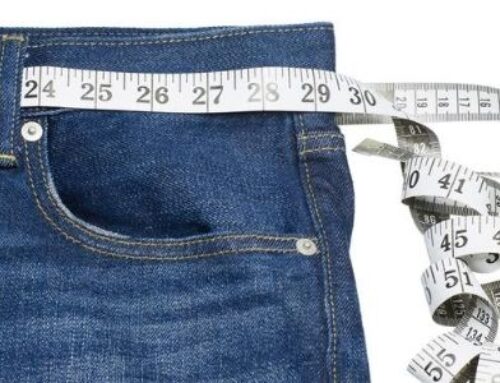 Losing weight is quite simple, or so it seems. It’s just a matter of making the energy we eat from food less than the energy we expend through our metabolism and physical activity.
Losing weight is quite simple, or so it seems. It’s just a matter of making the energy we eat from food less than the energy we expend through our metabolism and physical activity.
This may be so, but there is so much more to the journey of losing weight than just maintaining a negative energy balance.
I often here people say phrases like “I’ve fallen off the wagon”, “I’ve gone off track”, “I’m stuck in a rut”. If weight loss is so simple, then why is it so hard?
I believe it’s because food, in all its glory, is eaten for more than just the satisfaction of hunger or purely as fuel for your body.
We eat for so many more reasons than that. Culture, society, family heritage and even your emotional state all plays a role in what eventually ends up in your mouth. In saying that, the last time I walked into a fast food restaurant, it wasn’t because they were holding a gun to my head… I chose to walk in there, I chose to eat their food.
In the end, despite social pressure, cultural pulls and other reasons for eating we do have the power to choose what we will and will not put in our mouths.
Here are a few pieces of advice to help you along your way:
Set positive goals
Instead of setting a goal to not eat ‘unhealthy’ foods, set a goal to eat whole foods (fruit, vegetables, raw nuts, wholes grains, low fat dairy etc). When we set goals to eat food rather than not eat food we find that when snack time comes around we are too busy making sure we achieve our goal that we don’t have time to choose something that’s not good for us. Also, the more you tell yourself to not eat chocolate, the more you want it!
Plan to include your favourite foods
If you are trying to lose weight it’ll be vital to your success to keep your intake of ‘unhealthy’ foods to a minimum. However, a lot of people find that going cold turkey or completely denying themselves of a particular food only tends to make them binge on it after the diet is over or when they are having a weak (or hungry) moment. Plan your favourite foods into your week in a balanced way. That way you can organise it around social occasions or weekends and enjoy it mindfully rather than feeling like you’re ‘doing something wrong’ when you grab it spontaneously. You’ll enjoy it more because it’s only eaten occasionally and there’s no need to feel guilty about it because you’ve planned it into your routine.
Be prepared
If you’re heading out to a party, work function or other event, don’t go hungry. If you eat a nice healthy meal before you go, it’ll be easier to say ‘no’ to the party food because you wont be hungry, while you’re there. You can also take something for yourself to eat or drink like diet soft drink, a fruit platter or raw vegetables and a low fat dip.
Plan your meals
Eating well takes planning. You cannot expect to eat well if you are not in control of your meals. Organisation is the key to ensuring that there is a healthy, satisfying meal ready for you when you come home from a busy day at work, tired, stressed and hungry. If you are not organised you will grab something, quick, easy and probably not very healthy.
Start a hobby
You’re probably thinking, what does a hobby have to do with weight loss, but one of the biggest reasons for snacking on unhelpful food is boredom. After dinner, don’t sit down and watch TV if that temps you to snack on certain foods at the same time. Find something else that helps you relax that will keep you busy between work and bedtime. Learn an instrument, go for a walk, sew, write, read….
Choose high fibre
High fibre sources of carbohydrates are filling, great for your digestive system, help decrease your cholesterol and maintain stable blood sugar levels throughout the day. Try making the switch to wholemeal or soy and linseed bread, wholemeal pasta, brown rice or why not give legumes a go. Chick peas, lentils and beans are fantastic sources of fibre and should be part of your everyday diet.
Choose lean protein
Protein is a really important part of a balanced diet. Choose leaner options to minimise your fat intake. Protein will help in keeping you fuller for longer after meals, particularly when you eat them at breakfast time. They also lower the GI of your meals which also helps with keeping blood sugar levels nice and stable.
Choose whole, fresh foods
Processed, packaged foods are generally more energy dense and contain less nutrients than foods that have had little processing between the farmer and you. Make the bulk of your diet consist of fresh fruits and vegetables, salad, stir fries, soups, stews and casseroles. Snack on fruit salad, raw chopped vegetables and nuts and seeds. Try beans, lentils and legumes and whole fresh chicken, meat and fish.
The main thing to remember whilst embarking on your weight loss journey is to know that weight loss is for life. Keep the long term in mind and when you do fall off track, it’s just a temporary bump in the road. Keep on working at it, bad habits can be hard to shift, so the main thing is to not give up!
If you’d like further help with your nutrition please click below:





